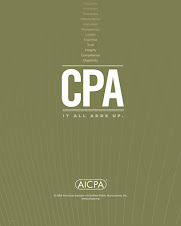Do
you bet on the ponies, play cards or enjoy slot machines, then you should know
that as a casual gambler, your gambling winnings are fully taxable and must be
reported on your income tax return. You can also deduct your gambling
losses…but only up to the extent of your winnings.
Here
are 5 important tips about gambling and taxes:
1.
Gambling income includes, but is not limited to, winnings from lotteries,
raffles, horse races, and casinos. It includes cash winnings and the fair
market value of prizes such as cars and trips.
2.
If you receive a certain amount of gambling winnings or if you have any
winnings that are subject to federal tax withholding, the payer is required to
issue you a Form W-2G, Certain Gambling Winnings. The payer must give you a
W-2G if you receive:
- $1,200
or more in gambling winnings from bingo or slot machines;
- $1,500
or more in proceeds (the amount of winnings minus the amount of the wager)
from keno;
- More
than $5,000 in winnings (reduced by the wager or buy-in) from a poker
tournament;
- $600 or
more in gambling winnings (except winnings from bingo, keno, slot
machines, and poker tournaments) and the payout is at least 300 times the
amount of the wager; or
- Any
other gambling winnings subject to federal income tax withholding.
3.
Generally, you report all gambling winnings on the “Other income” line of Form
1040, U.S. Federal Income Tax Return.
4.
You can claim your gambling losses up to the amount of your winnings on
Schedule A, Itemized Deductions, under ‘Other Miscellaneous Deductions.' You
must report the full amount of your winnings as income and claim your allowable
losses separately. You cannot reduce your gambling winnings by your gambling
losses and report the difference. Your records should also show your winnings
separately from your losses.
5.
Keep accurate records. If you are going to deduct gambling losses, you must
have receipts, tickets, statements and documentation such as a diary or similar
record of your losses and winnings.




